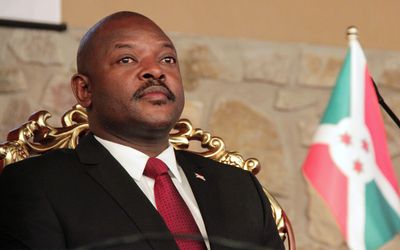By John Stremlau , 31 March 2015

President Nkurunziza (photo credit: REUTERS/Jean Pierre Aime Harerimana)
<p> </p><p>South Africa gained universal acclaim for brokering a ceasefire among Burundi’s main warring Tutsi and Hutu factions in 2000, and then with diplomatic tact and tenacity helped forge and sustain a complex power-sharing agreement enshrined in the 2005 constitution, since tested in two national elections. But all this is now under threat.</p><p> </p><p>Burundi is still an economically weak, politically fragile state of 10-million people — 85% Hutu, 14% Tutsi. In 1972, the Tutsi-dominated army massacred about 200,000 Hutu civilians in response to earlier atrocities committed by Hutu insurgents, followed by more than 30 years of conflict and mass violence that a 2003 international commission estimated killed more than 500,000 people.</p><p> </p>
Read the full article here:
Business Day
